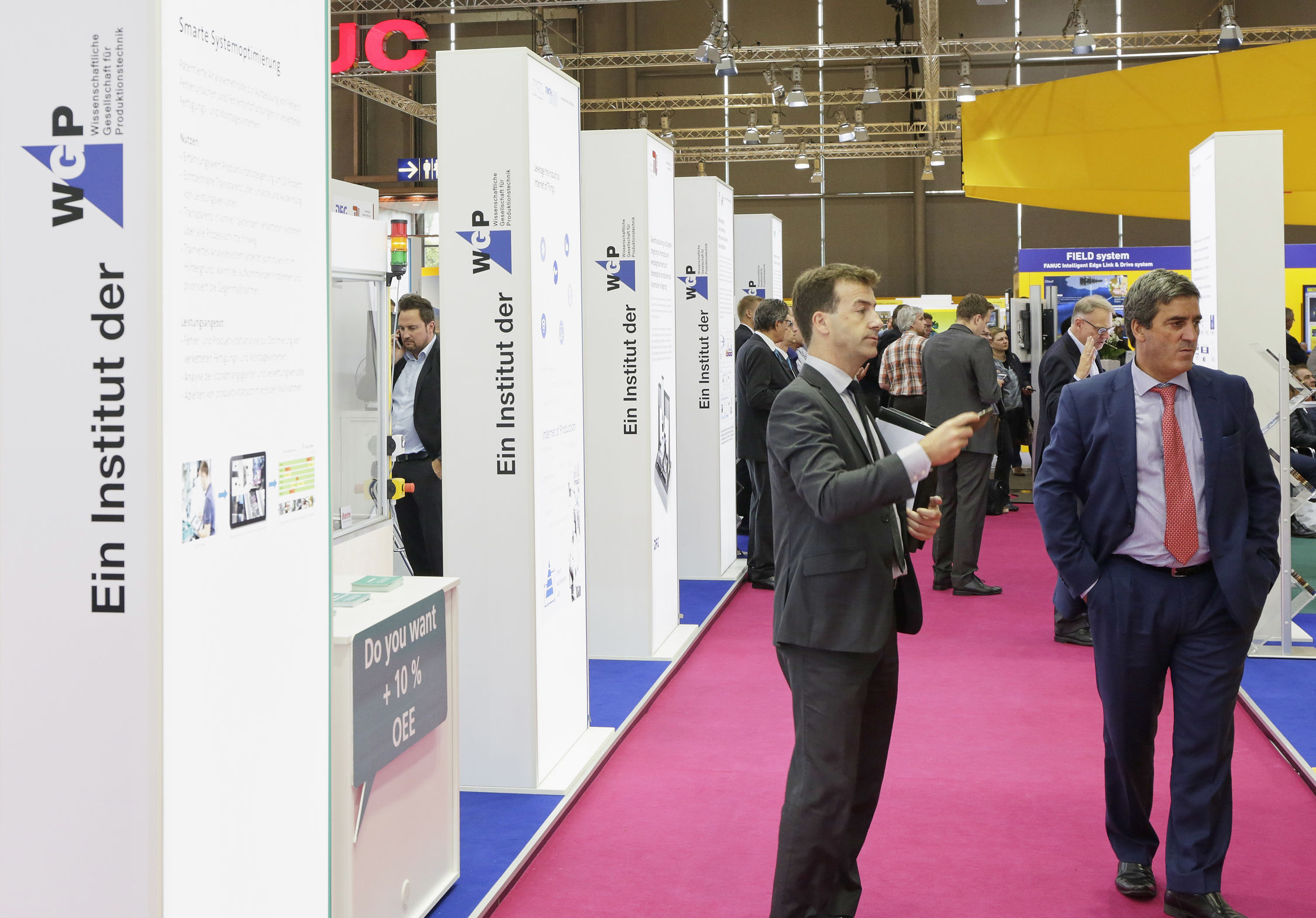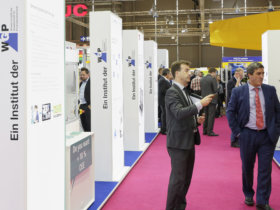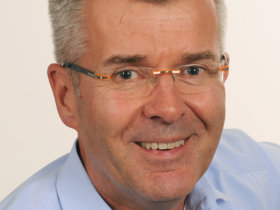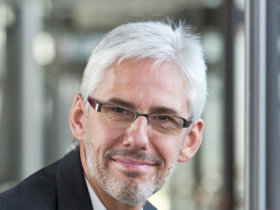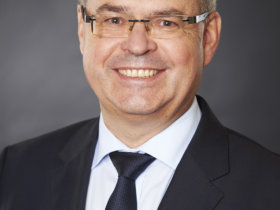Latest research findings to be presented at EMO Hannover
WGP to present sustainable and efficient solutions at the world’s leading trade fair
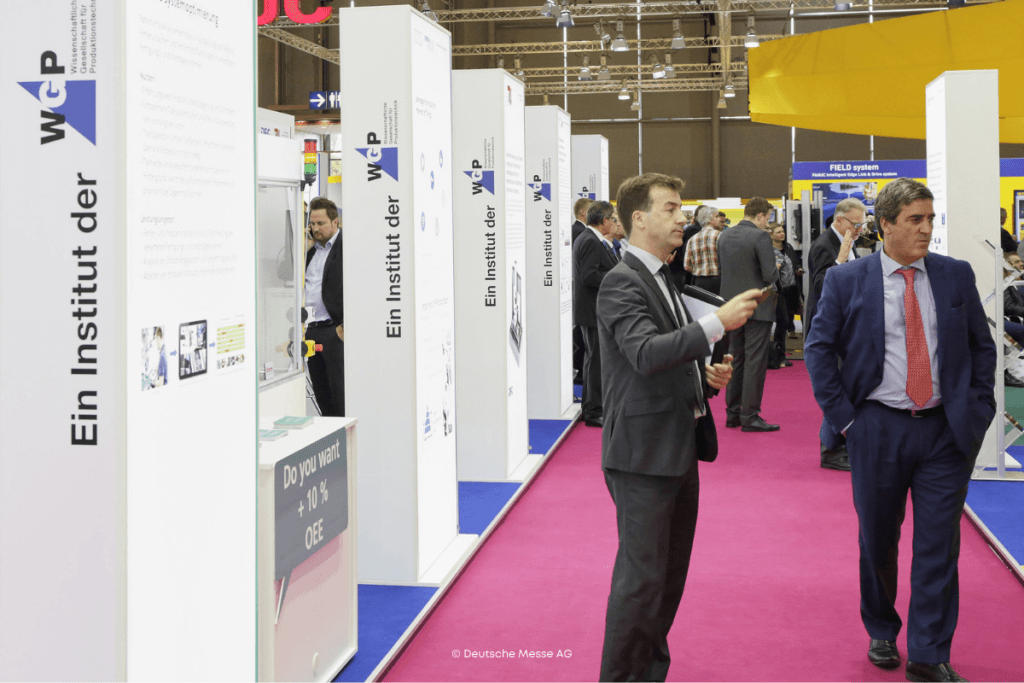
Production needs to become more resilient, sustainable and efficient in the future. The WGP (German Academic Association for Production Technology) will be showing how this can be achieved at EMO Hannover, the world’s leading trade fair for production technology, from 18 to 23 September 2023. “We contributed to the Let’s Talk Science online sessions in the run-up to the fair, but we are now looking forward to presenting some of our pioneering projects for industry to a global audience,” says Prof. Jens P. Wulfsberg, President of the WGP. “In Hannover, we’ll be opening a window on the future of manufacturing.”
The association of leading German production engineering academics will be represented on the joint WGP stand in the Future of Sustainability in Production Area (Hall 16, F11). “It makes sense for the WGP to be part of this special stand because it has been working on raising the efficiency and sustainability of production technology for many years now,” Wulfsberg emphasizes. “One specific project that has emerged from this, and that we will be showcasing at EMO, is our WGP efficiency initiative. We launched it in response to the energy crisis following the Russian invasion of Ukraine. We have numerous solutions designed to help industry save energy – very large amounts in some cases. There is great potential for savings, even in energy-intensive branches of industry. Some of the cost-saving measures can be implemented at short notice and with little financial outlay. However, the measures need to become better known – and there must be a desire to implement them.”
e-mobility becoming more economical
Besides the efficiency initiative, the WGP institutes are showing the results of their own research. The Institute of Production Science (wbk) within the Karlsruhe Institute of Technology (KIT), for example, has been working on electric traction motors for hybrid and fully electric vehicles for several years now. They are developing a modular construction kit which can be used to manufacture and assemble different types of traction motor more flexibly and thus more economically. At EMO Hannover, the researchers are now presenting a demonstrator for autonomous adaptive disassembly of these motors. “The demand for electric motors is set to rise sharply in the future. We therefore need to be developing innovative end-of-life solutions for these motors in order to minimize the need for new resources and energy input, and to reduce CO2 emissions in the production of new motors,” warns Prof. Jürgen Fleischer, head of the Machinery, Equipment and Process Automation Institute at wbk Karlsruhe. “Critical materials such as copper and permanent magnets can be recycled in this way.” In Hanover, the researchers will be simulating the entire process from planning through to physical disassembly using robots on the basis of a simplified motor model. “However, we will also be showing how discrepancies between the simulation and reality (caused by process failures, for example) can be detected. This can then facilitate autonomous adaptation of the disassembly plan,” says Fleischer.
Artificial intelligence finds its way into production
WGP will also be represented in the special Future of Connectivity Area (Hall 9, H22). Here, the Institute of Production Engineering and Machine Tools (IFW) at Leibniz University Hannover will be demonstrating its self-learning machine tool. The machine’s digital twin can use artificial intelligence (AI) to predict deviations in the shape before the manufacturing process and respond adaptively to them. In addition, AI-based process monitoring helps detect and avert unpredictable process failures in real time.
However, the researchers from Hanover will also be presenting the “Mittelstand-Digital Center” aimed at SMEs. This will feature AI best practices, and companies can inquire about tailor-made solutions for production technology.
The WGP will also be also presenting practical solutions as part of the joint IIP-Ecosphere project. The focus here is on the Institute’s own IIoT platform, which supports the development and execution of service-based AI applications in industrial production. There will be a total of four demonstrators at the event. The closing symposium on 19 September 2023 will be of special interest. Here, the staff will be presenting the results and findings from more than three years of research in the field of intelligent production, highlighting potential future applications.
“EMO is the ideal platform for us to identify cooperation opportunities with industrial partners, other research institutions and potential research partners,” explains Prof. Berend Denkena, WGP President from 2018/19 and Head of IFW Hannover. “Our aim is not only to act as a source of new ideas for companies, but also for us to obtain useful practical feedback that can serve as the basis for new research. The goal is to encourage the transfer of knowledge from research to industry and to work with companies in shaping the future of production technology.”
The ProKI-Netz (ProAI Network) takes the same approach. The network is coordinated by the Laboratory for Machine Tools and Production Engineering (WZL) at RWTH Aachen University, and it includes eight sites. Pro-KI-Hannover will be demonstrating AI-based automated quality inspection at the trade fair. Taking ground surfaces as an example, visitors will discover how scratches and irregular grinding patterns can be detected automatically.
All companies wishing to get themselves fit for the future should stop by at the WGP stand. Appointments can be arranged in advance.
Downloads
Pictures
Pic. 1: WGP at EMO Hannover 2019 Source: Mark Winkel-Blackmore, Deutsche Messe AG
Pic. 2: Prof. Jens P. Wulfsberg,President of WGP, Head of the Manufacturing Technology Laboratory (LaFT), Helmut Schmidt University, Hamburg, Source: LaFT Hamburg
Pic. 3: Prof. Berend Denkena, former President of WGP, Director of the Institute for Manufacturing Technology and Machine Tools (IFW), Leibniz Universität Hannover , source: IFW Hannover
Pic. 4: Prof. Jürgen Fleischer, Head of the Machines, Plants and Process Automation Institute of the Institute of Production Engineering (wbk), Karlsruhe Institute of Technology (KIT), Source: wbk KIT


